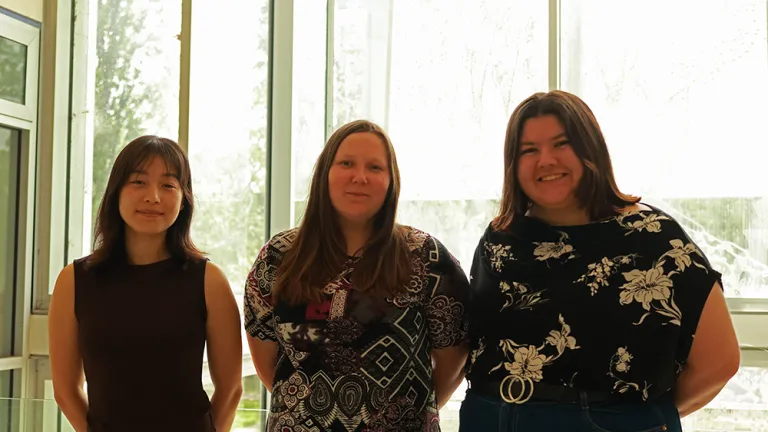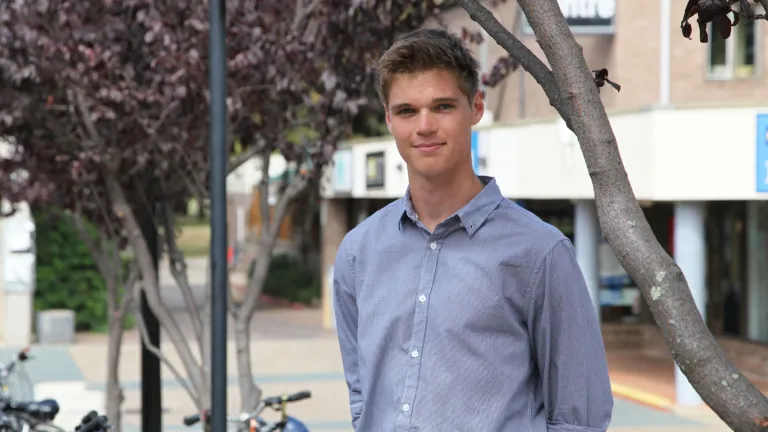
Honours
Overview
The Honours Specialisation in Science Communication is a unique opportunity to investigate how an aspect of science that you are passionate about has been communicated in the public arena, might be communicated better, or is affected by such things as government policy and community opinion.
If there is a communication or policy angle on your chosen science discipline that you think might make a good honours project, talk to the science commmunication Honours Convenor about the possibility of taking honours in science communication or jointly in science communication and another discipline.
Key facts
- #1 for Natural Sciences (QS 2022) in Australia
- #1 in Australia for graduate employability (Times Higher Education)
Program details
Information about admission requirements, fees and program structure can be found on the Programs and courses website.
Research topics
There is a lot of flexibility in the research topics that can be pursued in science communication honours projects. Examples of projects could be:
- a content analysis of how a science topic has been reported in the news (or in movies, or on blogs, or in high school textbooks, etc), with a view to understanding the effect this might have on public attitudes to the topic.
- the development, testing and evaluation of a tool for communicating science, for example a creative approach to science teaching, a short film designed to engage people with some aspect of science, a science centre exhibit, etc.
- a survey of public attitudes towards some aspect of science, for example reasons why people are attracted to scientific careers, or whether they trust scientists, or what they think about a controversial new scientific development, and what influences their opinions.
- a study of the kinds of forces that influence public debates about science, for example an examination of the links between government policy, industry pressures, community demands, and scientists' public image on climate change debates.
- an investigation into how scientists disseminate their ideas and communicate with each other, with politicians, with interested publics, with stakeholders, and so on.
- an examination of the communication needs of specific groups of people who use scientific information in their daily lives or their work.
The kinds of projects that are possible are limited only by your imagination and your interests. The very best projects come from original ideas, initiated by enthusiastic people who are interested in some aspect of science and in how it is communicated.
Past science communication honours students have looked at:
- a comparison of the nature of science within five international curricula.
- public attitudes towards and understandings of the concept of superfood.
- the importance of role models for women in science at ANU.
- investigating the use of video games for science communication.
- communicating the sociology of safety to the Australian pipeline industry.
- what chemistry students, academics and industry representatives believe is the purpose of chemistry education.
- whether audiences remember and desire futuristic technologies represented in fiction film.
- modes of rhetoric in Richard Dawkins' 2009 book The Greatest Show on Earth.
- how young Australians communicate about mental ill health on Facebook.
- public engagement with the issue of human cloning in response to a production of the cloning-themed play, 'A Number'.
- the regulation of pre-implantation genetic diagnosis in Australia, its availability, and its associated ethical and social issues.
- science teachers' perceptions of the credibility of websites for use in the science classroom, and tools for helping teachers effectively evaluate website credibility.
- the availability of university photonics courses in Australia and their ability to meet research and development needs in the field.
- wheat farmers' communication needs in a changing socioeconomic climate built on deregulation of the the wheat market.
- challenges for public understanding and awareness of forestry in Australia.
To help you think about project ideas, have a look at the kinds of science communication research projects currently underway at CPAS. If any of these research areas spark your interest, have a chat to the Honours Convenor. You can also browse projects by theme, and contact theme convenors for more information
Careers
Honours in science communication is the ideal cap to a bachelor’s degree for students interested in pursuing science communication research. Honours is strongly recommended as a requirement for commencing a PhD and/or an academic career in science communication. Students will also benefit from an honours year if they are interested in research-based careers in policy, for example working for the public service to produce evidence-based policy, or working within the community sector to lobby for evidence-based change. Honours can also be a wonderful opportunity for students to gain expertise in a very specific area of science communication, to enhance job prospects where such expertise is required.
Learning experience
Fees & scholarships
Scholarships
Whether you are looking for financial support to start your studies at ANU or help to move away from home for the first time, we have scholarship opportunities for you and your situation.
How to apply
Procedure to apply for Honours
To apply for Honours Specialisation in Science Communication please follow the instructions published on the Pathways to Honours page on the Current students - ANU College of Systems and Society website.
Pathways into HonoursProcedure to apply for Honours
To apply for Honours Specialisation in Science Communication please follow the instructions published on the Pathways to Honours page on the Current students - ANU College of Systems and Society website.
Pathways into Honours



